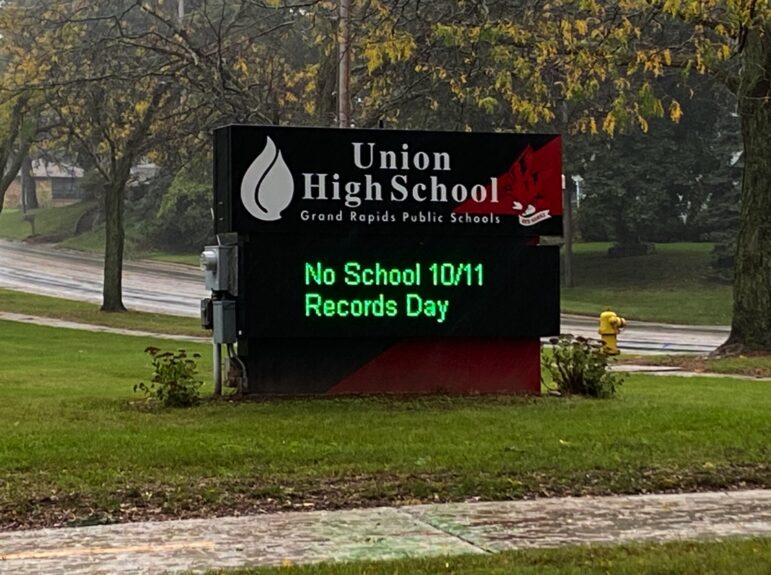
Grand Rapids Public Schools educational support staff will receive higher pay and other benefits to help with staff retention and hiring issues thanks to the pandemic.

The updated contract
The GRPS school board voted in favor of an updated contract brought to them by GRPS Chief Financial Officer Larry Oberst.
Oberst said the contract will affect custodial, facility, grounds and food service employees who make hourly wages. The contract will increase wage rates for these employees by 2.1 to 18.3%, so that the minimum wage is $14 per hour.
“This is one of the groups where we had wage levels below $12 an hour and in this environment we can’t compete with that,” Oberst said.
Oberst also said the contract will allow full pay for five “act of God” school cancellation days. Currently, educational support personnel aren’t paid when facilities are closed due to their status as hourly workers, he said.
The contract is a result of negotiating between the GRPS purchasing department and the Grand Rapids Educational Support Staff Association, Oberst said, and is one of a few bargaining agreements.
Timeline and qualifications
John Matias, the treasurer of the GRPS School Board, said the updated contract will go into effect in January.
Matias said pay raises for GRESPA employees will be based on how many years they’ve worked for the district.
“Employees will get higher raises if they’ve worked for the district longer,” Matias said. “If they are below qualifying for a raise based on the number of years they’ve worked, the district will still opt to give them a raise.”
Supporting employees
Tim Russ, a UniServ director for GRPS through the Michigan Department of Education, said the additional paid “act of God” days will help sustain support personnel employees during the winter months. These months are typically more difficult for hourly employees, he said.
Russ said the support personnel, such as custodians and food service workers who don’t work when the schools are closed, may go four weeks without a full paycheck because of the holiday break in December and snow days in January and February.
“The district is trying to make sure the people who work for them are able to keep their rent paid and buy groceries for their kids,” Russ said.
The district struggles to retain educational support staff during these months, Russ said. He said that custodial employees leave and seek employment at places with less closures.
Russ works with both the Grand Rapids Education Association, which represents teachers, and the Grand Rapids Educational Support Personnel Association. He said GRESPA bargains with the district for improved contracts and teaches employees how to advocate for themselves.
GRPS has struggled recently to retain support personnel, so they were compelled to meet the requests laid out in the bargain, Russ said. The higher wages and five “act of God” days will help current employees and recruit new hires, he said.
Understaffing and overtime
Russ said custodians work overtime and may become burnt out, if staffing needs are not met.
“I’ve got custodians working double and triple shifts,” he said. “People who work daytime shifts have to stay after to clean buildings where there’s not enough custodians.”
The pandemic is a reason why some educational support staff aren’t working anymore, Russ said.
“The decision to go back to work after the pandemic is something people have been contemplating very seriously,” he said. “They’re looking for other opportunities, or even retiring for safety reasons.”
For more about Russ’s work with GRESPA, click here for an audio interview.
Kristia Postema is third year student at Michigan State University studying Journalism and Social Relations & Policy. She plans to graduate from MSU in the spring of 2022. After undergrad, Kristia wants to attend law school. She is from Grand Rapids, Michigan and has lived in East Lansing for about two years. Growing up Kristia developed an interest in social and political issues through watching the nightly news with her family and studying history. She is passionate about public affairs and aspires to be a voice for social justice in her community.